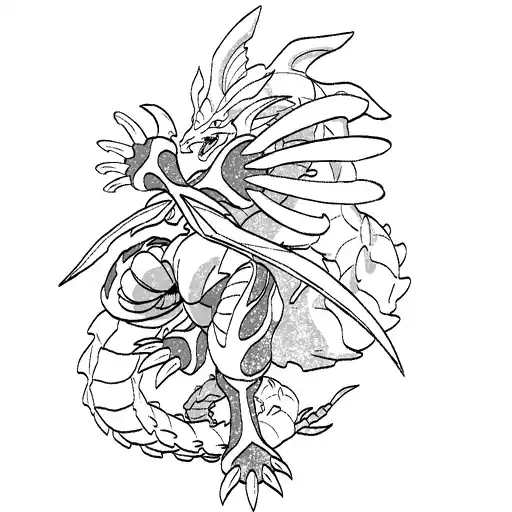Introduction
In the vibrant world of anime, where characters come alive and stories touch the hearts of millions, some individuals stand out not just for their artistic contributions but for their personal journeys. Shiki Aoki, a renowned voice actor best known for his portrayal of Asuka Ninomiya in The IDOLM@STER Cinderella Girls, has made headlines not only for his talent but also for his courage. Recently, Kawadon Entertainment and Nippon Columbia announced that Aoki had to cancel his appearance on the “motto! DereSta⭐Night” livestream due to health concerns. This incident brings to light both the pressures faced by voice actors in the anime industry and the personal challenges Aoki has navigated, including his public coming out as a transgender man in 2020. This article delves into Aoki’s professional achievements, his personal journey, and the broader implications for the anime industry and its audience.
Background and Context
The Unique World of Anime Voice Acting
Anime voice acting, or “seiyuu” work in Japan, is a unique and demanding profession. Unlike traditional acting, voice actors in anime must convey emotion and personality solely through their voice, often bringing animated characters to life in a way that resonates deeply with audiences. The role of a seiyuu extends beyond the recording booth; they often participate in live events, engage with fans, and contribute to the overall promotion of the anime.
Shiki Aoki’s Rise to Fame
Shiki Aoki’s journey in the anime industry is marked by a series of prominent roles that have solidified his status as a talented voice actor. His portrayal of Asuka Ninomiya in The IDOLM@STER Cinderella Girls and its anime adaptation, Idolm@ster Cinderella Girls Theater, showcases his ability to embody complex characters with nuance and depth. Beyond these roles, Aoki has contributed his voice to characters such as Kaoru Tsutsui in Real Girl, Asuta in Helck, and Makoto Asada in Cardfight!! Vanguard GZ, among others. Each role has allowed Aoki to explore different facets of character development, earning him a dedicated fanbase and critical acclaim.
The Personal Journey of Shiki Aoki
In 2020, Shiki Aoki bravely came out as a transgender man, a decision that was met with both support and scrutiny. In Japan, where discussions around gender identity are gradually becoming more open, Aoki’s announcement was a significant moment for LGBTQ+ visibility in the anime industry. It highlighted the ongoing challenges faced by transgender individuals in the entertainment sector and underscored the importance of representation and acceptance.
Main Insights on Shiki Aoki’s Impact
The Significance of Representation in Anime
Representation matters in every form of media, and anime is no exception. Shiki Aoki’s journey as a transgender man in the industry has opened up conversations about the importance of diverse narratives and characters that reflect the experiences of all individuals. By living authentically, Aoki provides visibility to transgender individuals within a traditionally conservative cultural context, challenging stereotypes and expanding the horizons of what is possible in anime storytelling.
The Challenges of Health and Wellbeing in the Industry
The announcement of Aoki’s canceled appearance due to health reasons sheds light on the pressures faced by voice actors. The demanding schedules, public appearances, and expectation to maintain an engaging persona can take a toll on mental and physical health. This incident serves as a reminder of the need for supportive environments that prioritize the wellbeing of artists, allowing them to thrive both personally and professionally.
Challenges and Opportunities in the Anime Industry
Addressing Stigma and Misunderstandings
Despite progress, stigma and misunderstandings about transgender identities persist in many parts of the world, including Japan. The anime industry, with its global reach, has the opportunity to challenge these misconceptions by promoting inclusive narratives and supporting diverse talent. By embracing stories and characters that reflect a wide range of experiences, the industry can contribute to a more inclusive cultural landscape.
Leveraging Diversity for Creative Innovation
Diversity is a catalyst for creativity and innovation. In the anime industry, embracing diverse voices and perspectives can lead to fresh storytelling approaches and richer character development. Shiki Aoki’s presence as a transgender voice actor offers opportunities to explore narratives that resonate with a broader audience, fostering empathy and understanding through art.
Future Outlook for Diversity in Anime
Emerging Trends and Cultural Shifts
As global conversations around diversity and inclusion continue to evolve, the anime industry is poised for significant cultural shifts. Increasingly, audiences are seeking content that reflects their own experiences and values, pushing creators to consider new perspectives and storylines. This trend towards inclusivity presents an exciting opportunity for anime to lead the way in representing diverse identities and fostering cross-cultural understanding.
The Role of Fans in Shaping the Future
Fans hold considerable power in shaping the future of the anime industry. Through their support for diverse content and creators, fans can influence production decisions and drive demand for more inclusive narratives. By actively engaging with and advocating for representation, fans play a crucial role in ensuring that the anime industry continues to evolve in a way that reflects the diversity of its audience.
Conclusion
Shiki Aoki’s journey in the anime industry is a powerful testament to the importance of authenticity, representation, and resilience. As a talented voice actor and a transgender man, Aoki navigates the complexities of identity and artistry with grace and courage. His story highlights both the challenges and opportunities within the anime industry, offering valuable insights for creators, fans, and cultural commentators alike. As the industry continues to evolve, embracing diversity and supporting artists like Aoki will be key to unlocking the full potential of anime as a global cultural phenomenon.





